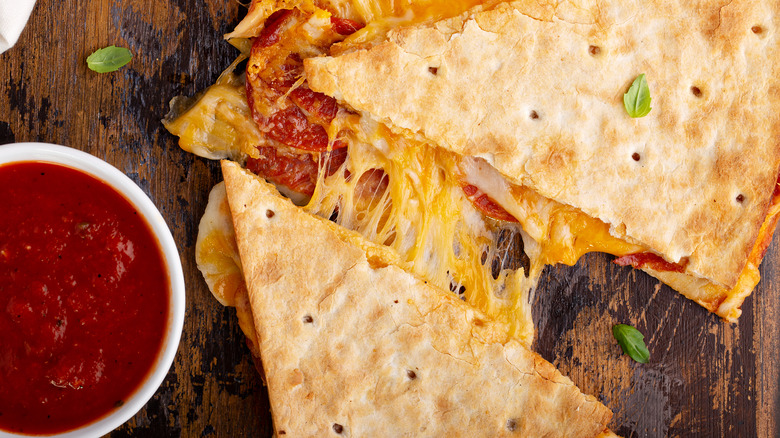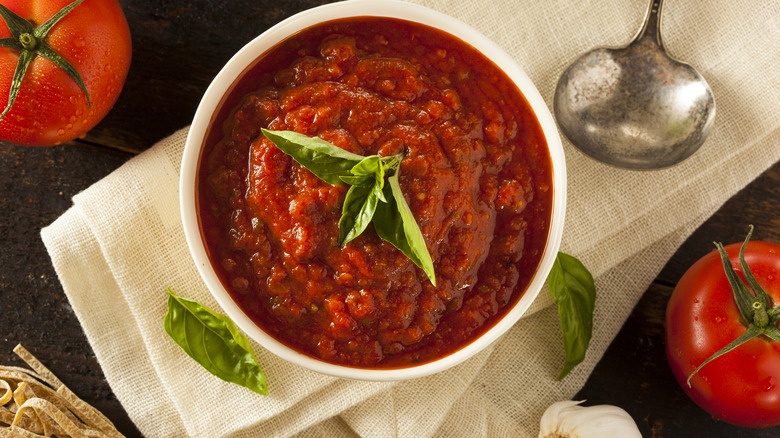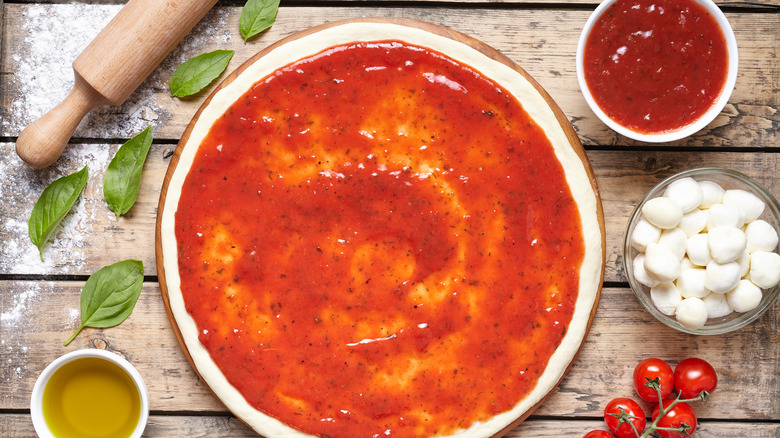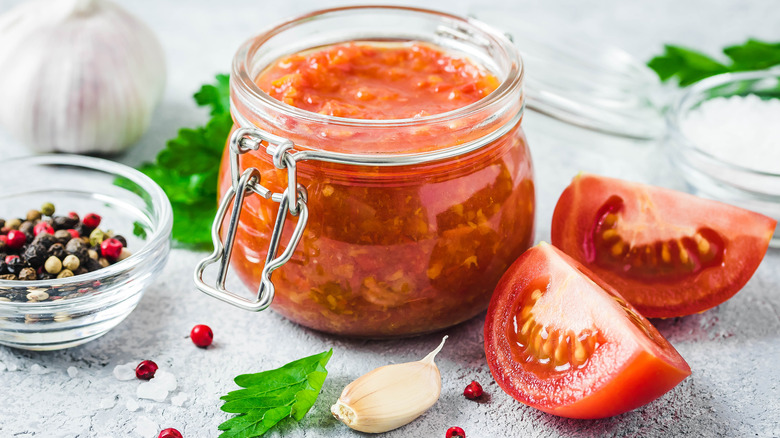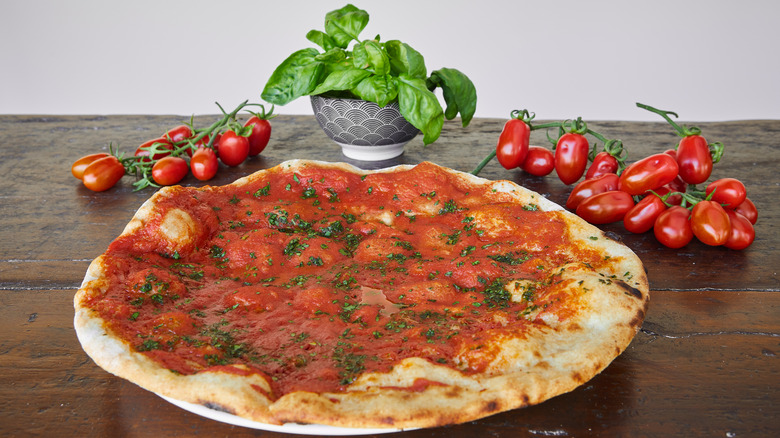Should You Be Using Marinara Sauce For Pizza?
Pizza is well-loved all over the world. Americans have particularly taken to it, and it has become one of the go-to quick bites for many people. To put some context to this, about 40% of Americans consume pizza no less than once every week, according to the Washington Post. A simple meal made of cheese and pastry as the primary ingredients, there are surprisingly many ways to prepare pizza, especially when making the dish at home. Also, unlike decades ago, today there are many sauces that you can use to cook your pizza to your liking.
Among the most popular sauces for making pizza are marinara, BBQ, alfredo, and pesto. Out of the different options available, the question of whether to use marinara sauce on pizza is common among pizza lovers. So if you are struggling to find the correct answer to this question, this article is for you. This post will bring to the fore all you need to know about marinara sauce and answer the million-dollar question; should you use it on pizza? Stick around to find out more!
What is marinara sauce?
There is no doubt that marinara sauce is a staple for Italian cuisine. However, it has also found uses in different meals including pasta, pizza, and sandwiches – just to mention a few. Although its exact origin is not well documented, it is believed to have originated from one of the popular cities in southern Italy; Naples or Sicily (via Paesana). At its core, marinara sauce is not as complex as imagined. Among its basic ingredients are tomatoes, garlic, a spice of your choice, and classic Italian herbs.
While these are the primary ingredients, there are different variations of this sauce. As such, one can include any other ingredient of their choice to customize the flavor profile to their liking. Compared to a typical pizza sauce, marinara sauce is usually not quite as thick. Other than consistency, the other factor that distinguishes it is its diversity of purpose. As such, marinara sauce has found use in many cuisines thanks to its rich flavor.
What is pizza sauce
Unlike marinara sauce, the delicious red dressing that usually accompanies your pizza is quite often uncooked until you slide the pie into the oven. While this might not come across as a significant difference, cooked sauces are different from their uncooked counterparts in terms of flavor and consistency. In fact, PMQ mentions that cooking a sauce often creates a thicker consistency than uncooked alternatives. However, it is also worth mentioning that cooking pizza sauce is not totally unheard of. In fact, quite a few American-style pizza sauces are cooked with a variety of aromatic ingredients like onions and herbs to make them rich and flavorful.
Pizza sauce is predominantly tomato puree seasoned with some salt and any other herb of choice for additional flavor. Nonetheless, it is also important to mention that they tend to range in flavor depending on the brand. It is common for different brands to use different ingredients to make their taste stand out from the competition. Ready-made pizza sauces have made it easy for anyone to put together a home-cooked pizza.
Differences between marinara and pizza sauces
Although the base ingredient for marinara and pizza sauce is tomatoes, the two are more different than they are similar. One of the most significant differences is the flavor which stems from the preparation process. Marinara sauce is prepared with different ingredients and allowed to simmer for a while, which infuses a great deal of flavor into the resulting product. On the other hand, pizza sauces are usually not quite as rich in flavor. This is particularly true for uncooked varieties that only require a few ingredients and some seasoning.
Another noteworthy difference between the two sauces is the consistency. Again, the cooking process has a lot to do with how thick the sauces turn out. The more time marinara spends simmering, the thicker it becomes. On the other hand, pizza sauces are either raw or slightly cooked. However, it is also important to mention that pizza sauces don't need to be too thick to be spread evenly on the dough before cooking (via Mama Cucina Italian Restaurant).
So should you put marinara sauce on your pizza?
First off, note that there is no right or wrong answer to this question. It all comes down to individual preference. However, as mentioned earlier, marinara sauces have found use in different dishes and pizza is no exception. This is particularly true if you run out of pizza sauce and want to save yourself from a long trip to the store. However, marinara sauce is bound to bring a different twist to your pizza experience by including different flavors you wouldn't otherwise get.
The good news is that you can quickly turn marinara into a pizza sauce or vice versa. Antonio Carluccio recommends adding more spice and making the paste thicker via simmering when converting a pizza sauce to marinara. On the other hand, turning marinara into pizza sauce usually involves adding extra tomato sauce or tomato juice to improve the consistency.
